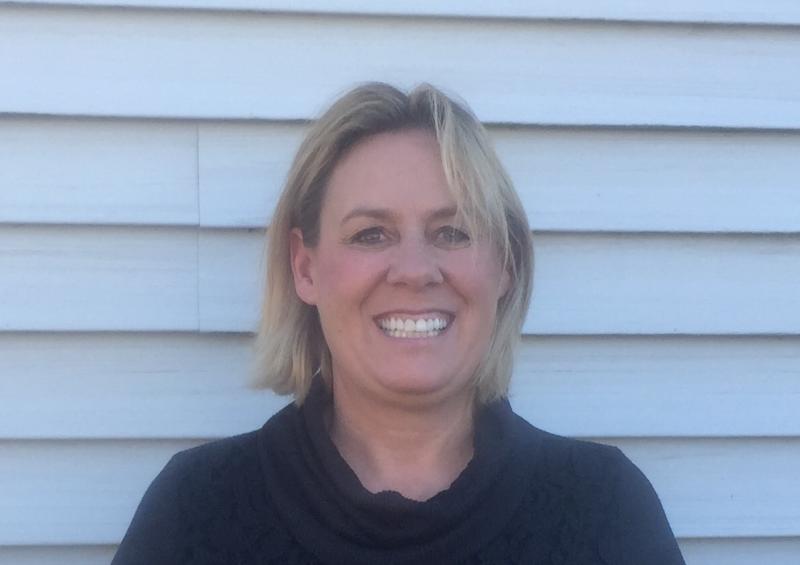Stephanie Hawke is the Republican incumbent for Maine State House of Representatives District 89. Hawke, who faces Democratic opponent Holly Stover in the Nov. 6 election, had a few things to share about the challenges her district and the state are facing.
The three most pressing issues Mainers face said Hawke are the labor market, the opioid epidemic and high taxes.
“There's probably not a town in Maine – and if there is, kudos to them – that's not looking for help on every level,” said Hawke. “Try to get a plumber or an electrician.”
As businesses close early in the day, the week, or even in the season because they are short-staffed, said Hawke, there is a serious problem.
The opioid epidemic needs to be addressed from multiple angles, said Hawke. First and foremost is “shutting the valve” wherever that is, which will help separate drugs from the community; keeping the youth active and promoting life and work skills to better serve themselves and the community is important. Hawke also cited Two Bridges Regional Jail as an excellent example of helping recovering addicts find skills for future jobs.
“But I got a letter yesterday from a woman who lives in Windham. She said there's all these things for men to do when they get out, but there's nothing for women. I'm going to have to look at that …”
Ultimately, taxes are driving Mainers away and turning them into “part-time Mainers,” said Hawke, and often prevent would-be business owners from trying to start up.
“The last eight years, the taxes have been lowered, but it's not enough. People are saying to me 'What I pay in Maine taxes would pay for rent for me to be in Florida.'"
According to Hawke, it is similar considerations that hurt Maine’s chances of attracting and keeping big and small businesses.
“There are a lot of big companies, when they come into Maine, who have questions: What are your energy prices? Maine is out of this world. Is it a right to work state? Maine is not. What are your income taxes? … Those are big questions.”
Hawke also said that a challenging process to starting up businesses is a huge problem and rather than seeing how state, county and municipal government can help, the process roadblocks them with paperwork.
“It's 'no' before 'Wow, you're gonna start a business. Great, what can we do to help?' They start with 'This is what you're going to need,' so I think we need to change the attitude from negative to positive and help people instead of kicking them at the knees and roadblock after roadblock after roadblock.
“There are things we can do, but, again, it turns partisan. To get people here, to get energy, all these things that no matter what party you're in wants – stop. Let's just get it done. If we want to say we want Maine to be welcoming, we need to stop the shenanigans.”
Maine’s fiscal surplus will be key in Maine’s future, said Hawke. The first order of business would be to pay all the bills on time and to ensure a buffer.
“You've got to start giving back to the people you take it from … Surprises do happen, so you need to have a little backup, (but) instead of coming up with … another organization, another office – give it back, give the taxpayers some of their money back. Make it cheaper. Stop nickel and diming us. Start cutting some of these things that add up.”
Asked if the state should create tax incentives for renewable energy, Hawke said, "The state should, but you can only go so far …”
Hawke said the price of solar is too high at this point to burden ratepayers with. There are steps forward with renewable energy, said Hawke, but only after prices are driven down and the technology is more affordable.
“When you start putting the solar out there and putting that money on the backs of the ratepayers – I can't – and that's why I consistently voted against it.”
Medicaid expansion is also a difficult issue, said Hawke, because the 2017 referendum charges the state with the expansion and there is no way to fund it.
“And, of course, that's the million dollar question because any state that has done it is in the red. I think when you give something for free – number one, there should be guidelines … Should it be cheaper? Yes, but you can go on the exchange.”
The problem with the exchange, said Hawke, is that the list of companies providing under the Affordable Care Act has been dwindling. One way forward would be to open the door to companies outside Maine. “Our hands are tied so they can charge us whatever and it's not cheap. It just keeps going up and up and up and up. When you have competition, prices tend to go down a little bit.”
Hawke said other priorities with the expansion should ensure the elderly and disabled have precedence and that a copay should exist.
“You've got to prioritize: Who needs it and who doesn't …”































